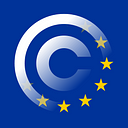Europe and copyright: turning back the clock
What’s the opposite for modernization? Regression? Turning back the clock? Whatever the word may be, the European copyright reform tabled by the European Commission on September 14, 2016 does not seem a modernization at all. The main purpose of this proposal seems, despite wider and corageous ambitions showed by the Commissin at very beginning , just to countervail the growing power of main OTTs and social platforms vis-à-vis publishers and content industry by empowering the latters with reinforced negotiation powers. It is very doubtful that this ultimate purpose will be ever achieved while collateral damages may be higher than expected.
The feared provisions on ancillary copyright are aimed to grant to publishers a 20-years right about their news and content. In countries like Germany and Spain where a similar attempt was already done, Google (the real objective of these legislative initiatives) reacted by de-indexing the publishers’ news, which then preferred to waive the rights in order not to be obscured from the search.
This means that in this market there is rather a potential problem of competition, which is not addressed by the proposed rules.
Whatever the new proposal will end up, Google will not be obliged to negotiate and could be able to get granted the publication right for free. By contrast, other Internet operators, start-up, emerging social platforms and blogs will face the uncertainty. They may be required to pay the publishers without having the same capability of Google of monetizing the news and without the same negotiation power vis-à-vis the publishers (in Italian: cornuti e mazziati).
The legal uncertainty is currently the bigger issue here: the current wording of the proposal does not clarify the concrete impact, whether, for instance, hyperlinks and snippets will be covered by the new system. Executives of both Commission and European parliament have repeatedly excluded it, however there is no willingness to add clarity in the text, and this is somehow worrying.
Furthermore, it will be interesting to see how publishers may think to use their new weapon against Facebook, a platform which is becoming much more powerful than Google news in aggregating and making available news.
In addition, the European Commission is seeking to force hosting sites (Youtube and others) to monitor user-uploads for similarity to works where media companies claim copyright, and empower those companies to prevent the upload from working. Again, also in this case the Commission is granting a specific industry sector (the content and media industry) a tool to balance the negotiation battle with OTTs and big platforms, but it is not clear whether this system will ever work and what could be the collateral damage. To make an example, while Google & Co may negotiate whatever with the content industry while granting the minimum, other operators will not be able to do it. The same issue applies when dealing with sophisticated identification systems: Google/Youtube can put in place such systems, others probably not.
Meanwhile, photographers are left at risk of being sued for copyright infringement by architects when they take a photo with a building in the background; the Commission has passed up the opportunity to introduce a so-called “panorama” exception to fix this problem.
Taken together, these issues point to a legislative proposal which contains little progressive measures for digital citizens and providers of innovative online services. It is regrettable to remember that when announcing its much-lauded Digital Single Market strategy in 2015, the European Commission committed to empower the Internet as an engine of European economic growth. But in today’s copyright “modernization” proposal, the Commission has instead rocked the legal foundations of Europe’s digital economy — namely the intermediary liability safe harbors of the E-Commerce Directive — and has put a chill on information society innovation.
One may hope that European Parliament and the EU Council will attentively scrutinize and amend the legislative proposal in the coming months.
PS: amongst so much darkness, a light of hope. The proposed directive sets fort the right for artists to be duly informed by publishers about the commercial results of their licensed works and, in case of unexpected and extraordinary success, to get an additional compensation. This is a remarkable improvement for young and unknown artists

